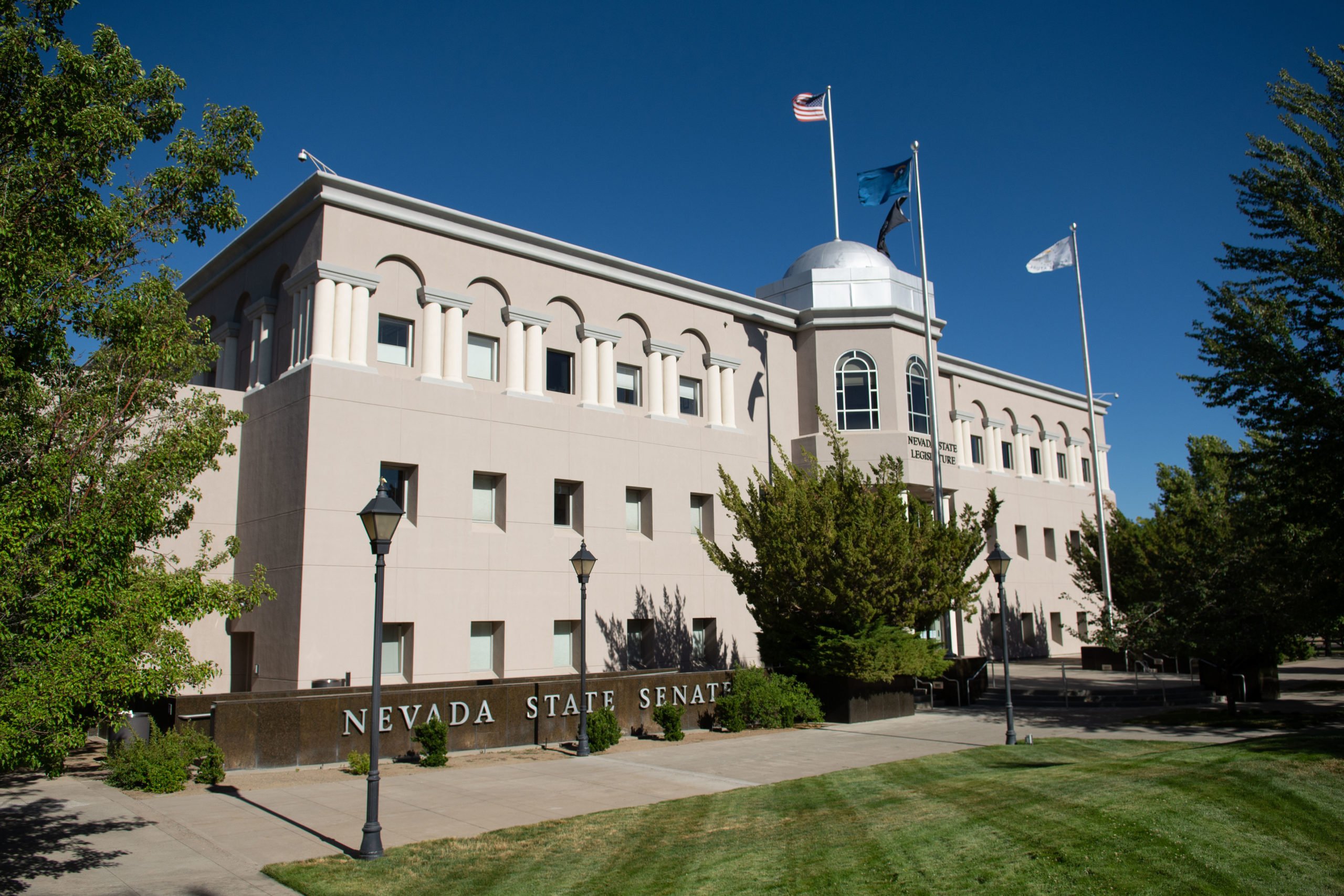By SAM METZ AP/Report for America
CARSON CITY, Nev. (AP) — Amid mixed signals about the trajectory of the coronavirus pandemic, a panel of five government-appointed analysts sent forecasts to Nevada’s governor and state lawmakers on Thursday suggesting that it could be years before state tax revenue rebounds to pre-pandemic levels.
Although state and federal officials have rejoiced over the impending arrival of vaccines, which could be distributed widely by spring, the Nevada Economic Forum approved forecasts that project the economic impact will outlast the virus and shrink tax revenue through the next two-year budget cycle until 2023.
The shortfalls are expected to be less than they were in the 2020 budget year, however. Linda Rosenthal, the panel’s vice chair, said that Las Vegas had been hit harder than the rest of the country but noted casinos in regions that depend less on fly-in traffic haven’t seen parallel drops in demand.
“The minute we get the vaccine disseminated and we get travel back — like I said, the demand for gaming has proven to be there — so I feel very comfortable with seeing those numbers bounce back to pre-pandemic levels and even above,” she said.
Nevada is one of seven states that levies no personal income tax on residents and relies heavily on tax revenue from tourism and hospitality to underwrite spending, including on health care and education. Sales tax accounts for almost one-third of general fund revenue and the state also relies heavily on live entertainment and gaming taxes from tourists who frequent concerts and casinos on the Las Vegas Strip.
With the number of visitors down to levels not seen since 1993, concerts and conventions cancelled and hotel rooms sitting empty, Nevada has been among the hardest hit economically by the virus and restrictions put in place to contain it.
The forum’s forecasts project the state will collect $8.5 billion in general fund revenue over two years, down 5% from the $8.85 billion they projected for 2019-2021. It projects that neither gaming fees nor sales and use taxes will recover to pre-pandemic levels until the 2023 budget year.
Meanwhile, the costs of education, health care and labor are expected to continue their steady rise. Amid the pandemic, demand for state services is unlikely to dwindle.
Analysts stressed that the projections were little more than guesses given the difficulty of anticipating the pandemic’s trajectory, especially with a vaccine on the way.
Regardless, the forecasts will serve as a starting point for state lawmakers tasked with re-balancing the state budget.
Decisions over whether to slash funding for schools, roads or Medicaid recipients, or to furlough state workers, could depend on congressional relief and provisions like the $1,200 stimulus checks issued in March, which buoyed consumer demand and benefited places like Las Vegas, said Hayley Owens, an economist with the Nevada Department of Taxation.
Much like after the Great Recession, the shortfalls will likely prompt battles over whether to preserve Nevada’s status as a small-government, low-tax haven or diversify revenue streams to protect against economic volatility.
During a July emergency session, the Democratic-controlled Legislature passed a budget that prevented some furloughs and salary freezes for state workers that a proposal by Gov. Steve Sisolak initially recommended. The change garnered objections from Republicans, who argued the funds would be better spent preserving education and health care spending. Republicans thwarted Democratic efforts to rein in deductions claimed by state mining businesses and the battles will likely reemerge in February when the Legislature reconvenes.
Democratic Party-aligned groups are already clamoring for tax changes. Last month, after Sisolak directed state agencies to prepare to slash 12% from their annual budgets, the labor union representing teachers in Clark County, home to Las Vegas, submitted signatures for proposals to increase state sales and gaming taxes to raise additional revenue. The petition requires lawmakers to consider the bill in 2021 and if they reject it, put it before voters in 2022.
___
Sam Metz is a corps member for the Associated Press/Report for America Statehouse News Initiative. Report for America is a nonprofit national service program that places journalists in local newsrooms to report on undercovered issues.

